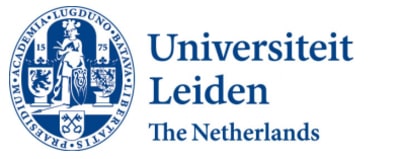
Msc Population Health Management
Leiden University

Key Information
Campus location
The Hague, Netherlands
Languages
English
Study format
On-Campus
Duration
2 years
Pace
Full time
Tuition fees
EUR 2,209 *
Application deadline
Request info
Earliest start date
Request info
* for non-EEA, non-Swiss, & non-Surinam applicants: €19,600
Introduction
Today's health care system faces many challenges. The new interdisciplinary two years Master PHM will train you to contribute to a more integrated health care system.
What does this Master’s programme entail?
Health care faces ageing populations, rising health care costs, fragmented health care supply and advancing medical technologies and IT systems. Health care professionals will require new competences to meet these challenges in the current health care system. Population Health Management aims at tackling these challenges in a broad sense and has emerged as an important strategy for health care worldwide.
Reasons to choose Population Health Management at Leiden University
- In the Master PHM, knowledge insights from epidemiology, data analysis in healthcare, medicine, public administration and behavioral sciences are combined into a globally unique interdisciplinary program.
- Your training into a PHM expert has a strong connection to the field: the knowledge and insights gained are directly applied to practice-related cases.
- Students with various backgrounds work together during online and intensive on campus education.
Curriculum
First year
In the first semester, after an introductory course on Population Health Management, students take four courses with monodisciplinary knowledge on epidemiology, governance, data analytics and behaviour. The second semester covers interdisciplinary courses on topics like alternative payment models, syndemics and predictive modelling. The first year is completed with two courses on implementation: panel management and implementation. Two real life project cases, which run parallel to the programme, ensure the mutual consistency between the first year courses.
- Fundamentals of Population Health Management (5EC)
- Study Design (5EC)
- Health and Health Behaviour (4EC)
- Governance (4EC)
- Responsible Data Analysis (5EC)
- Alternative Payment Models (4EC)
- Projectcase I (6EC)
- Syndemics (5EC)
- Predictive Analytics (5EC)
- Panel Management Next Level (5EC)
- Implementation: putting PHM into action (5EC)
- Projectcase II (7EC)
During two orientation weeks in the first year, you are supported in constructing your own individualized second year programme in which you choose a specialization in epidemiology, data science, governance or syndemics.
Second year
The first 30 ects of the second year are reserved for deepening your knowledge, skills and competences in one of the four in depth specialisations: Governance, Syndemics, Data Science or Epidemiology. Within the chosen field, you are allowed to make your own individualized programme. In order to help you make a good choice and create your individual programme, the coordinators organize two orientation weeks during the first year.
You will get the opportunity to follow courses at Leiden University or universities abroad combined with internships in national or international organizations or research institutes; we have a broad network of international partner universities. All acquired competences will come together in the final piece of the Master’s programme: the final research project.
International experience
The international nature of the scientific field of PHM and its worldwide relevance demands an international environment. We encourage you to broaden you international scope during your second year by taking courses or arrange an internship abroad at one of our partner universities (among others: Johns Hopkins University Baltimore (USA), University of Newcastle (Australia), University of Cape Town (South Africa) and University of Toronto (Canada) or through our partner organisations (the LERU Association and the International Foundation of Integrated Care (IFIC)).
Gallery
Ideal Students
Population Health Management: the right programme for you?
In the Master PHM, you will be trained as an interdisciplinary academic trusted partner to contribute in the role of strategic broker to the changes needed in today's fragmented healthcare system.
- Do you have prior training in healthcare and want to expand your knowledge about behaviour, data and policy?
- Want to become an Academic Trusted Advisor to support health care organizations, government agencies or commercial companies in their contribution to the development of a more integrated health care system?
- Would you like to be trained in a new interdisciplinary and international field that is still in full development?
- Do you have an open attitude, are you proactive and open-minded and do you believe in lifelong learning?
Then the Master's in Population Health Management is for you!
Admissions
Career Opportunities
As an academic strategic partner of PHM, you have the skills to look and act across domains and integrally in solving complex healthcare issues. This is requested in a wide range of healthcare organizations and businesses and government.
The programme is competence-oriented, PHM expertise lies at the core of the competences:
PHM expertise
Reason from the need and necessity of health challenges in the population, thinking and acting in a holistic, innovative, sustainable, transformative and proactive way and being able to communicate about complex health care issues with various professionals involved.
Academic skills
Execute and combine different scientific methodologies (mixed methods) in a responsible way in order to innovate the medical professional field.
Data-driven thinking and acting
Gather, integrate, edit, interpret and report qualitative as well as quantitative data from the medical and social domain relevant for the various stakeholders.
Eclectic thinking and acting
Approach and analyse health care issues from different perspectives, as well as argue and select the best solutions.
Deliberative governance thinking and acting
Weigh pros and cons on different organisational levels in order to support an effective decision making structure.
Transformative skills
Being able to think and act proactively from a technological, societal and medical perspective in an ever-changing, complex professional and organisational context.
Skills after graduation
After your graduation you have the opportunity to work in many organisations in strategic staff positions or as a data scientist, depending on your specialization, in health and social care organisations and insurers, policy organisations at international, national and local level and suppliers in health care to researchers in academic institutes. You will be the broker between various perspectives with a clear vision on future sustainable health care.